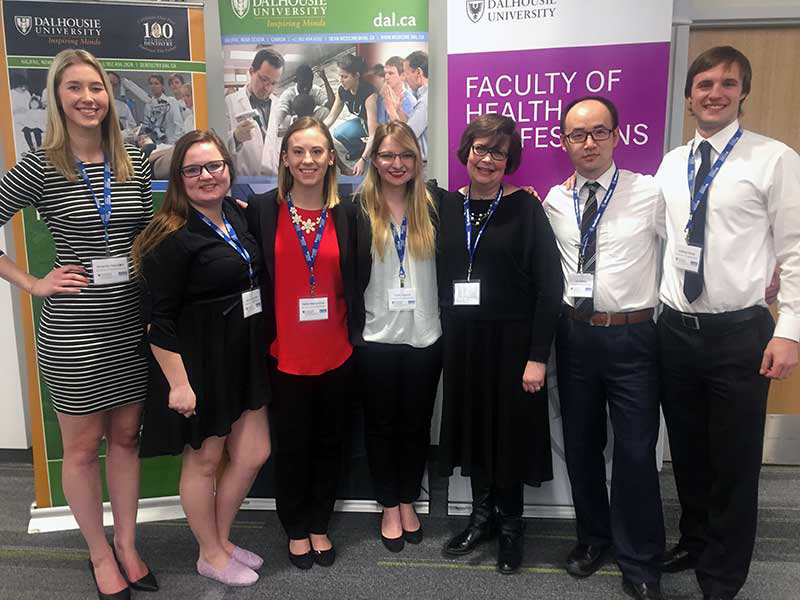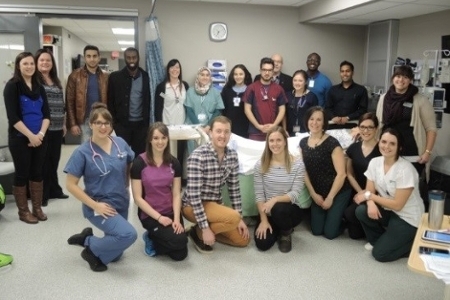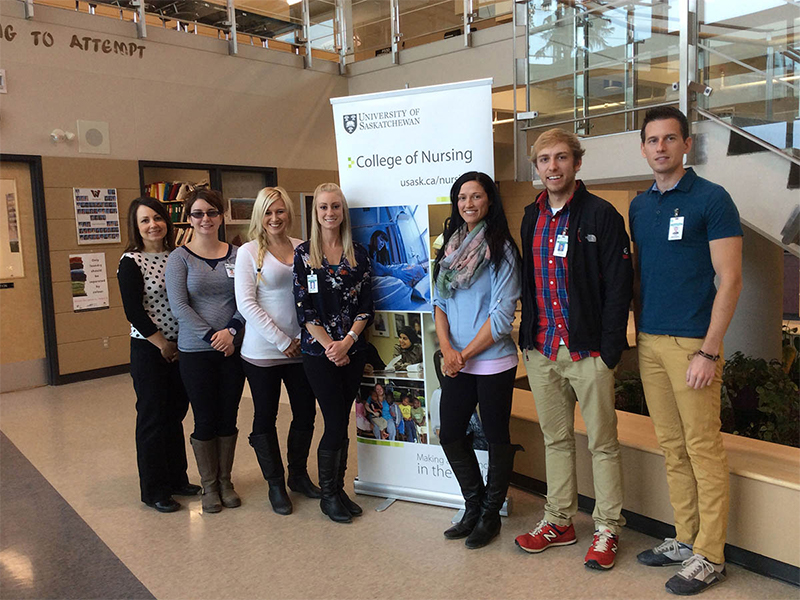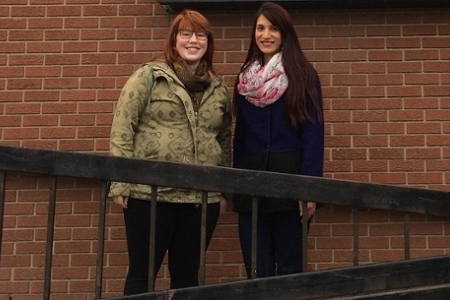Interprofessional Education
Students
Students identify interprofessional education (IPE) as an important element within their education and future practice. They are actively engaged in the development, implementation and evaluation of College of Nursing IPE activities.

The constantly changing and complex environment surrounding health care requires health care providers to work in interprofessional teams. A University of Saskatchewan interprofessional team demonstrated this collaborative approach and claimed top honours at the 2016 National Health Care Team Challenge in Halifax, Nova Scotia.

The development of creative ways to incorporate IPE in simulation environments was conceptualized by faculty at the Regina Campus. The Curriculum Innovation Fund from the Gwenna Moss Centre for Teaching Effectiveness provided the opportunity to plan and create an 'Inspiring Interprofessional Excellence' experience prior to the 2015 Canadian Nursing Student Association (CNSA) conference.

A group of fourth year nursing students worked together during their clinical placement to organize a very well-received community outreach event in 2014. Nursing students, high school students, media, health care professionals and the community came together for an injury prevention fair at Warman High School. The event included guest speakers from STARS Air Ambulance, Warman RCMP, Warman Fire Department and the Saskatoon Police Service Canine Unit.

Imagine working with students from a variety of backgrounds with a range of experiences, volunteering your time doing something you love and providing much needed services for Saskatoon’s core neighbourboods. The Student Wellness Initiative Toward Community Health (SWITCH) offers just that. SWITCH is a non-profit organization created by students, run by students, primarily those in the Health Sciences.
Similar to the SWITCH opportunity in Saskatoon, Regina nursing students can volunteer at SEARCH - a student run, interdisciplinary primary health care initiative situated in Regina. Their goal is to provide access to social and clinical programs after-hours, in a clinical setting to bridge the gap in service for diverse populations.

